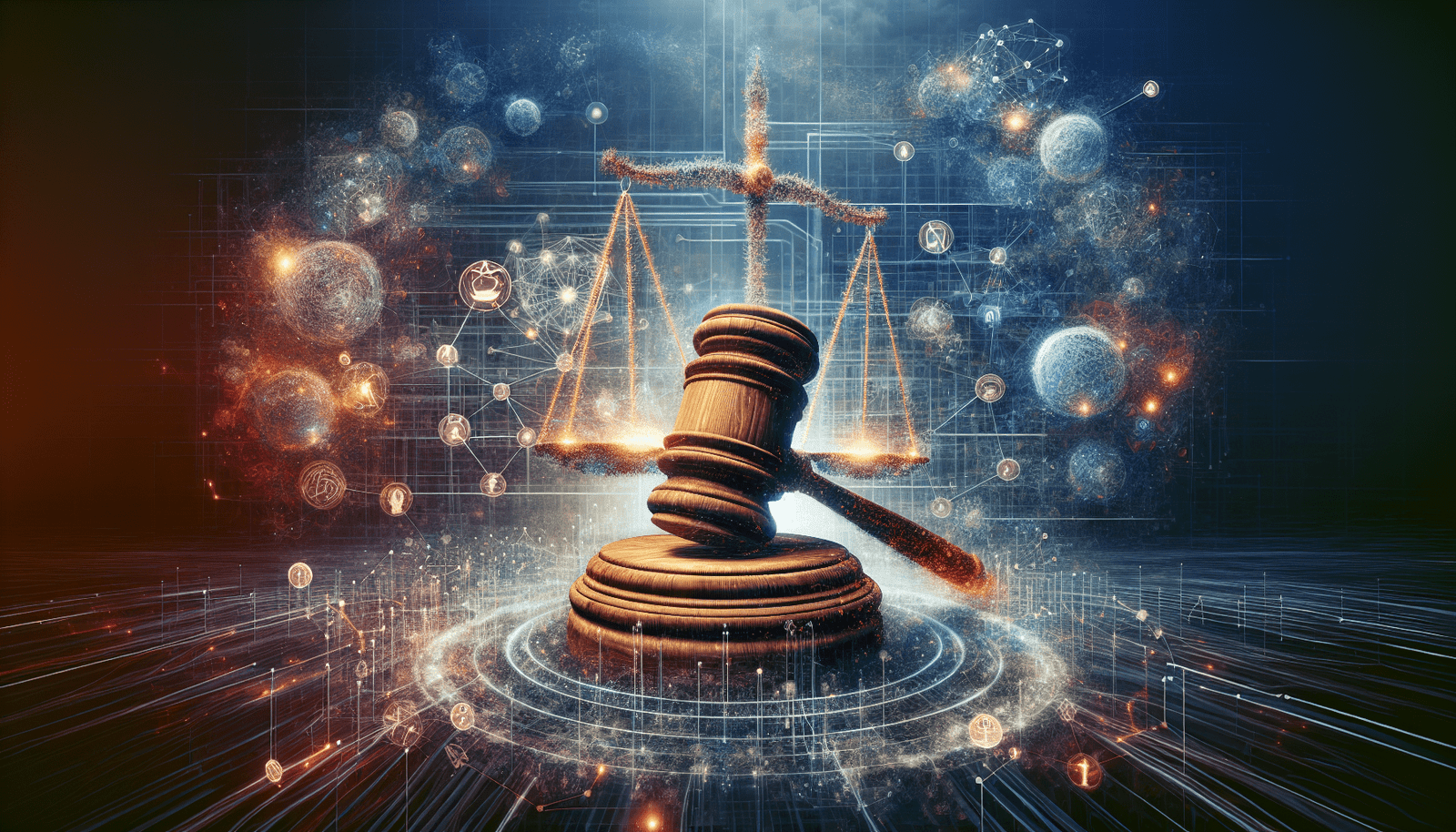Legal Issues for Online Gaming Communities takes you on a journey through the maze of laws and regulations that affect gamers and developers alike. As someone who has spent countless hours in virtual worlds, I’ve seen firsthand how legal complexities can arise and sometimes even disrupt the fun. This article dives deep into key topics like player privacy, intellectual property rights, and the impact of international laws on global gaming. By the end, you’ll have a solid grasp of the challenges that online gaming communities face and the rules they must navigate to stay compliant and secure. Join me as we explore how these legal intricacies shape the digital playgrounds we love. Have you ever wondered what kind of legal hoops you have to jump through when running or participating in an online gaming community? I know, right? It’s not something that usually crosses your mind while you’re engrossed in an epic quest or coordinating a raid with your buddies. But oh boy, the legal landscape of online gaming is an intricate web, much like navigating a maze blindfolded. Let’s dive into the wild world of legal issues for online gaming communities and see if we can untangle this mess together, shall we?

Understanding the Basics
Before we dive headfirst into the deep end, let’s paddle around the shallows and get a grip on the basics. Online gaming communities aren’t just virtual hangout spots. They’re complex ecosystems with their own sets of rules, users from across the globe, and interactions that range from friendly banter to fierce competition.
What Defines an Online Gaming Community?
At its core, an online gaming community is a group of users who interact with each other in a virtual environment centered around a specific game or games. Think of it like a digital clubhouse where gamers come together to share tips, strategies, and sometimes, their love for memes.
Types of Online Gaming Communities
Knowing what type of gaming community you’re dealing with can affect the kind of legal issues that may arise. Here a few common types:
| Type | Description |
|---|---|
| Guilds/Clans | Groups of players organized to play together regularly. |
| Forums | Platforms for discussions related to games. |
| Social Media Groups | Facebook groups, subreddits, or Discord channels for gamers. |
Common Legal Issues
Alright, now that we’ve got our feet wet, let’s jump into some of the murky waters of legal issues. Trust me, it’s a lot more riveting than it sounds.
Intellectual Property (IP) Infringement
One of the biggies when talking about legal issues in online gaming is Intellectual Property (IP) infringement. Whether it’s people pirating games or creating mods without permission, it’s a legal minefield out there.
Unauthorized Mods and Hacks
Creating or using unauthorized mods can get you into a heap of trouble. Developers often own all the rights to their games, including any modifications.
Streaming Games
Streaming on platforms like Twitch and YouTube can also be a legal gray area. While many game developers encourage streaming, some do not, and using their content without permission can be considered stealing their IP.
Cyberbullying and Harassment
Ah, the dark underbelly of the internet. Cyberbullying is unfortunately prevalent in many online gaming communities. From harassment to threats, it’s a murky legal area that can result in severe consequences for the perpetrators.
Privacy Concerns
With great power comes great responsibility, or in this case, great amounts of personal information. Gaming communities often collect data from their users, and mishandling this data can get you into hot water faster than a teapot on full boil.
| Privacy Issue | Description |
|---|---|
| Data Collection | Collecting user data without consent. |
| Data Breaches | Failing to protect user data, leading to hacks and breaches. |
| Third-Party Sharing | Sharing user information with third parties without transparency or permission. |
Gambling Laws
Believe it or not, many online games involve elements that are remarkably similar to gambling. Think loot boxes, in-game purchases, and betting systems. Navigating these waters requires a law degree—or at least a really good lawyer.
Terms of Service Violations
Terms of Service (ToS) are those long, boring documents everyone agrees to without reading. Violating these can result in bans or legal action. It’s like breaking a promise you didn’t know you made—nothing good comes out of it.

Regulations and Compliance
Alright, I’ve laid out the problems, but what about solutions? How do you stay out of the courtroom while still enjoying your game?
General Data Protection Regulation (GDPR)
If you have players from the European Union, then GDPR is something you can’t ignore. It sets strict guidelines on data collection and user privacy.
Children’s Online Privacy Protection Act (COPPA)
For those pesky underage gamers, COPPA sets rules to protect their information. Violators can face hefty fines—think of it as a steep toll for crossing a bridge you didn’t even know existed.
Digital Millennium Copyright Act (DMCA)
If you’re streaming or posting game content, the DMCA will be your constant companion. It offers a “safe harbor” for platforms but also lays down the law for copyrighted material.
Case Studies
Now, let’s spice things up with some real-life drama! Here are a few juicy case studies that illustrate what can go wrong—and sometimes right—in online gaming communities.
The World of Warcraft Guidebook Lawsuit
A guild leader in the popular game World of Warcraft (WoW) thought it’d be a neat idea to write a comprehensive guidebook and sell it. Blizzard, the game’s developer, didn’t think so and sued him for copyright infringement. Long story short, creating and selling content based on someone else’s IP can get you sued faster than you can say “For the Horde!”
Fortnite and the Dance Moves Fiasco
Ah, Fortnite—the game that spawned a thousand memes. Epic Games, the developer, got hit with multiple lawsuits over the use of popular dance moves turned into in-game emotes. Various artists and dancers claimed that the game stole their original choreography. It’s like someone inviting themselves to your party and saying they planned it—only to make millions off it.
Practical Tips for Staying Out of Legal Trouble
Okay, so we’ve seen how things can go wrong. Let’s now talk about how to stay on the right side of the law while managing or participating in an online gaming community.
Do Your Homework
Ignorance of the law is no excuse—unless you’re a cat, apparently. Here are some essentials you should definitely be familiar with:
- Read the Terms of Service: No, really. Read them. They’re long and tedious, but they’re your contract.
- Understand Copyright Laws: Especially if you plan to create content around games.
- Know Your Audience: If your community includes minors, understand the additional legal responsibilities.
Implement Strong Community Guidelines
Creating and enforcing clear guidelines can save you from a multitude of legal issues down the line. Think of it like putting up a “No Trespassing” sign—many problems never start because you’ve set clear boundaries.
Monitor and Moderate
Good moderators are like those unsung heroes, tirelessly keeping trolls at bay. They can help enforce community rules and prevent incidents that could lead to legal action.
Data Protection Measures
Protecting user data isn’t just good ethics; it’s good business. Employ encryption, regularly update your security measures, and be transparent about how you use data.
Importance of Legal Counsel
If your community grows big enough, hiring a good attorney is more than just a wise move—it’s essential. Think of it as equipping your fortress with not just brick walls but also trebuchets and boiling oil.
What to Look for in Legal Counsel
| Criteria | Why It Matters |
|---|---|
| Experience with Gaming | You want someone who understands the specific legal landscape. |
| Knowledge of IP Law | Critical for handling copyright issues. |
| Data Protection Expertise | Vital for GDPR and other privacy laws. |
Conclusion
Phew, that was a roller coaster, wasn’t it? The legal issues surrounding online gaming communities can seem overwhelming, but with a little knowledge and a good set of guidelines, you can navigate these murky waters. Next time you’re lost in your favorite game or managing a thriving online community, remember that a bit of legal know-how can go a long way. Happy gaming, and may your quests be ever-so-victorious without facing any real-world dragons—especially of the legal variety!



